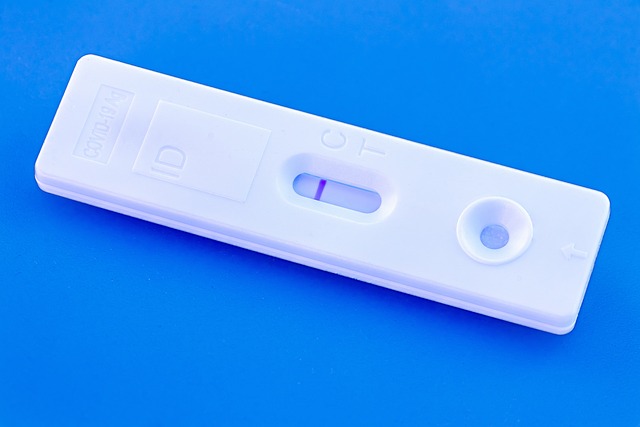In the UK, a simple Testosterone Blood Test is crucial for men's reproductive health, aiding in diagnosing conditions like hypogonadism and polycystic ovary syndrome (PCOS). Normal testosterone levels (10-300 nmol/L) indicate good health; low or high levels may signal underlying issues requiring treatment. This test plays a vital role in early detection and maintaining optimal reproductive well-being.
“Unraveling the complexities of male reproductive health, this article delves into the transformative power of analyzing hormone levels. Specifically, we explore the UK Testosterone Blood Test as a pivotal tool in diagnosing reproductive issues. Understanding the intricate connection between male hormones and fertility, we guide readers through the process, results interpretation, and subsequent steps post-test. By shedding light on this often-overlooked aspect, we aim to empower individuals to take charge of their reproductive well-being, especially with the advanced diagnostics offered by the UK Testosterone Blood Test.”
- Understanding Male Hormone Levels and Their Role in Reproductive Health
- The UK Testosterone Blood Test: How It Helps in Diagnosing Reproductive Issues
- Interpreting Test Results: What to Expect and Next Steps After a UK Testosterone Blood Test
Understanding Male Hormone Levels and Their Role in Reproductive Health
Male hormone levels play a pivotal role in reproductive health, with testosterone being the primary focus. In the UK, a testosterone blood test is a common diagnostic tool used to assess male fertility and sexual health. This powerful hormone is responsible for various physical developments, including muscle mass increase, bone density growth, and the development of secondary sex characteristics. It also plays a crucial part in maintaining libido and overall sexual function.
Understanding these hormone levels is essential as imbalances can lead to reproductive issues. Low testosterone (hypogonadism) may cause decreased fertility, fatigue, muscle loss, and reduced bone density. Conversely, high levels can result in aggressive behaviour, acne, enlarged prostates, and potential heart health risks. Regular monitoring and UK testosterone blood tests can help identify these imbalances early on, enabling men and their healthcare providers to take appropriate steps to maintain optimal reproductive health.
The UK Testosterone Blood Test: How It Helps in Diagnosing Reproductive Issues
In the UK, the Testosterone Blood Test plays a pivotal role in diagnosing reproductive issues in men. This straightforward and non-invasive procedure measures the level of testosterone, the primary male sex hormone, in the blood. The test is particularly useful for evaluating male fertility and identifying potential underlying conditions that may be affecting reproductive health.
By analysing testosterone levels, healthcare professionals can detect conditions such as hypogonadism, where the testes do not produce enough testosterone, or androgen deficiency. This test also aids in diagnosing disorders like polycystic ovary syndrome (PCOS) in men, where hormonal imbalances can impact fertility. Moreover, it helps identify cases of testicular injury or disease, ensuring prompt and targeted treatment for reproductive issues.
Interpreting Test Results: What to Expect and Next Steps After a UK Testosterone Blood Test
After undergoing a UK Testosterone Blood Test, it’s natural to feel a mix of anticipation and uncertainty about what the results will reveal. Interpretations depend on several factors, including age, overall health, and whether you’re experiencing specific symptoms. Normal ranges vary slightly between labs, but generally, testosterone levels are measured in nanomoles per litre (nmol/L). A level within 10-300 nmol/L is typically considered normal for adult males.
If your test results fall within this range, it suggests that your testosterone levels are adequate. However, if the reading is below 10 nmol/L, it may indicate hypogonadism or low testosterone, which could lead to further investigations and potential treatments. Conversely, elevated testosterone levels (above 300 nmol/L) might warrant concern and further medical evaluation for possible causes, such as tumours or endocrine disorders. Your healthcare provider will discuss the results with you, addressing any concerns and outlining the next steps based on your individual case.
The UK Testosterone Blood Test is a valuable tool in diagnosing reproductive issues, offering insights into male hormone levels that can significantly impact fertility. By understanding the results of this test, individuals and healthcare professionals can take informed steps towards managing and treating underlying reproductive problems. This comprehensive approach ensures better outcomes and enhances quality of life for those seeking assistance in navigating their reproductive health journey.
